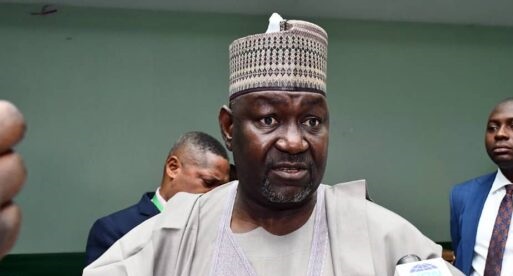The Minister of Power, Engr. Abubakar D. Aliyu has said the federal government has selected contractors and they will be soon contracted formally to implement the 7,000 megawatts (MW) Siemens power deal.
The minister stated this in a statement on Wednesday to mark his 50th day in office. Engr. Aliyu assumed duty as minister of power on September 5, after his appointment was announced by President Muhammadu Buhari at a Federal Executive Council (FEC) on September 1.
- Ohanaeze begs IPOB for peace as FG insists on Anambra election
- COVID-19: 4th wave imminent as Lagos begins vaccination of 4m residents
He said, “The first phase of the Presidential Power Initiative (PPI) is the upgrading and expansion of the vital infrastructure of the Transmission Company of Nigeria (TCN) and DisCos with the end goal of achieving 7,000MW.
“This first phase started in earnest this year, with the ongoing pre-engineering phase. The selected Engineering, Procurement and Construction (EPC) contractors will soon be contracted officially so work on the project implementation can commence.”
The minister also said the entire Siemens deal tagged the Nigerian Electrification Roadmap (NER) will expand Nigeria’s electricity capacity from the current average output of 4,500 megawatts hour per hour (MWh/h) to 25,000MW.
“We are confident that the NER will succeed because of the pedigree of Siemens and their footprint in the global power industry,” he said.
Highlighting other milestones, the minister said, “Since I assumed office in this Ministry, 50 days ago, a lot has transpired in that short period. This reinforces my inaugural assertion and conviction that you do not need to be a magician to perform.”
Aliyu who said, “We have put in place goal delivery machinery which is operational” added that soon, “many of our lingering challenges in the power sector are now being addressed in a methodical, systematic, and proactive manner.”
He also said the government was monitoring all the licensees along with their revised Performance Improvement Plans (PIP) to have a better understanding of why some critical stakeholders are performing below expectation.
“One very critical concern that we must address in this performance monitoring process is to find out if the terms for granting of licenses were onerous,” said Aliyu.

 Join Daily Trust WhatsApp Community For Quick Access To News and Happenings Around You.
Join Daily Trust WhatsApp Community For Quick Access To News and Happenings Around You.


